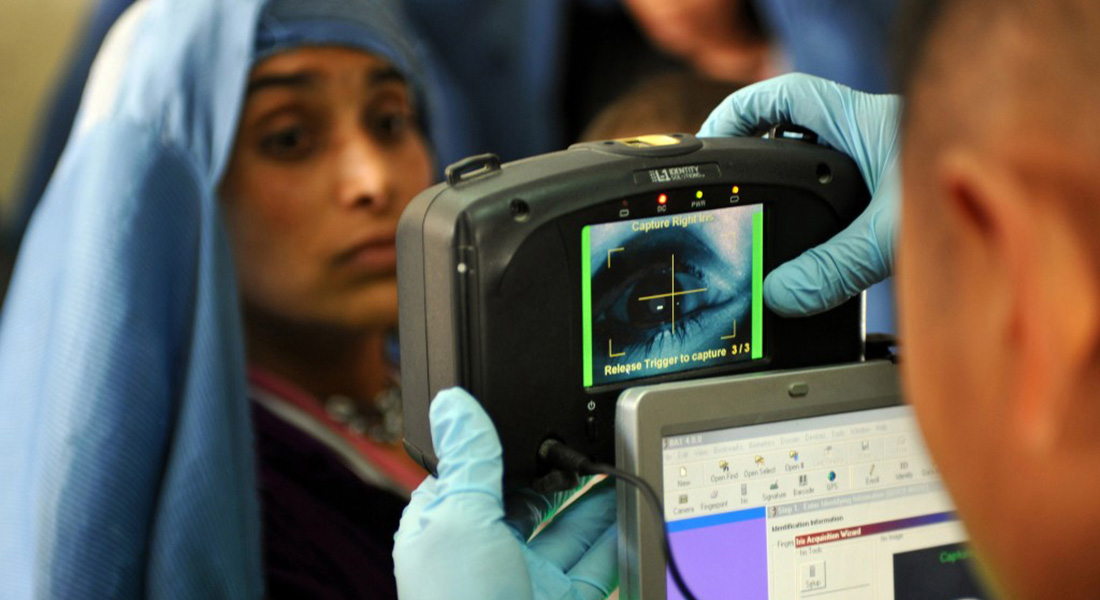Biometric Border Worlds

THE PROJECT IS CLOSED
Project period: July 2016 to December 2019
The collaborative research project 'Biometric Border Worlds' was initiated in July 2016, funded by the VELUX FOUNDATIONS. On the one hand, it explored the epistemological foundations, practical applications and social implications of biometric technologies in the context of migration. On the other hand, it investigated migrants’ experiences, knowledge and (attempted) circumvention of biometric technologies, and how this may have influenced further technological development.
Recent years have seen increasing use of biometric technologies to track the movements of migrants and refugees and register their identities. As global voluntary and involuntary (refuge) migration continues to rise, there have been significant investments in the development of biometric security measures and border control techniques. While biometric technologies are often portrayed as objective by developers and stakeholders, they are, in fact, embedded in specific societal contexts. This anthropological project examined such contexts, focusing on how new technologies came into being, their social and political significance, the assumptions attached to their use as well as the identities, practices and relations that they enabled and/or disabled. The project was highly topical and offered an important contribution to research on migration, identity, subjectivity and social relations, as well as an ethnographically grounded contribution to studies of surveillance and technology.
The project was being carried out by Professor Karen Fog Olwig, Kristina Grünenberg, Perle Møhl & Anja Simonsen, all based at The Department of Anthropology, The University of Copenhagen.
A) Biometric technologies and bodies in the making
Contact: Kristina Grünenberg
B) The work of images and the enskilment of vision in the control of migrating identities
Contact: Perle Møhl
C) Biometric Technologies in Family Unification
Contact: Karen Fog Olwig
D) 'Did you get your fingers taken?' : The experiences of biometrics among Somali migrants and brokers in transit
Contact: Anja Simonsen
Participants
PI Karen Fog Olwig, Professor of Anthropology, University of Copenhagen
Researchers
Associate Professor Kristina Grünenberg
All from the Department of Anthropology, University of Copenhagen.
Book
In the book ‘The Biometric Border World – Technology, Bodies and Identities on the Move’ (Routledge 2019), the researches behind the project examine how biometrics are developed, put to use and negotiated in key European border sites.
National and supranational authorities and industry promote biometric technologies as scientifically exact and neutral methods of identification and verification, and as an infallible solution to security threats. However, the ethnographic case studies in the book demonstrate that the technologies are, in fact, characterised by considerable ambiguity and uncertainty and subject to substantial subjective interpretation, translation and brokering with different implications for migrants, border guards, researchers and other actors engaged in the border world.
Journalistic article
The project and book is also described in a Danish article on the homepage of the department (10/12 2019):
Biometri - når grænsen kryber ind i kroppen
Scientific articles
- IDentities and Identity: Biometric Technologies, Borders and Migration, special issue of Ethnos, edited by K.Grünenberg, P. Møhl, K.F. Olwig & A. Simonsen. Ethnos, Journal of Anthropology, 2020.
Biometric technologies that use digital representations of bodily phenomena to identify individuals have become an institutionalized method of registering and recognizing persons, thereby establishing their right to cross borders. Based on situated ethnographic fieldwork among tech-developers, border police, forensics, IT hacktivists and migrants, the special issue illuminates how biometric technologies are put to use and experienced by the diverse social actors who imagine and promote, develop, employ, are subjected to and attempt to circumvent such identification.
- Møhl, P. and A. Simonsen (2018) Når stemmerne forstummer: om samarbejde, vidensdeling og forræderi. Tidskriftet Antropologi 77: 115-122.
- Møhl, Perle (2018) Border control and blurred responsibilities at the Airport, pp. 118-135 in Tessa G. Diphoorn and Erella Grassiani, eds. Security Blurs, the Politics of Plural Security Provision. London: Routledge.
Head of project
Professor Karen Fog Olwig
Department of Anthropology
University of Copenhagen
Øster Farimagsgade 5, 1353 Copenhagen K, Denmark
Phone: +45-35 32 34 79
E-mail: karen.fog.olwig@anthro.ku.dk
Funded by
 Biometric Border Worlds was funded by the Velux Foundations
Biometric Border Worlds was funded by the Velux Foundations
Project: Biometric Border Worlds
Project Leader: Karen Fog Olwig
Start: July 2016
End: December 2019
